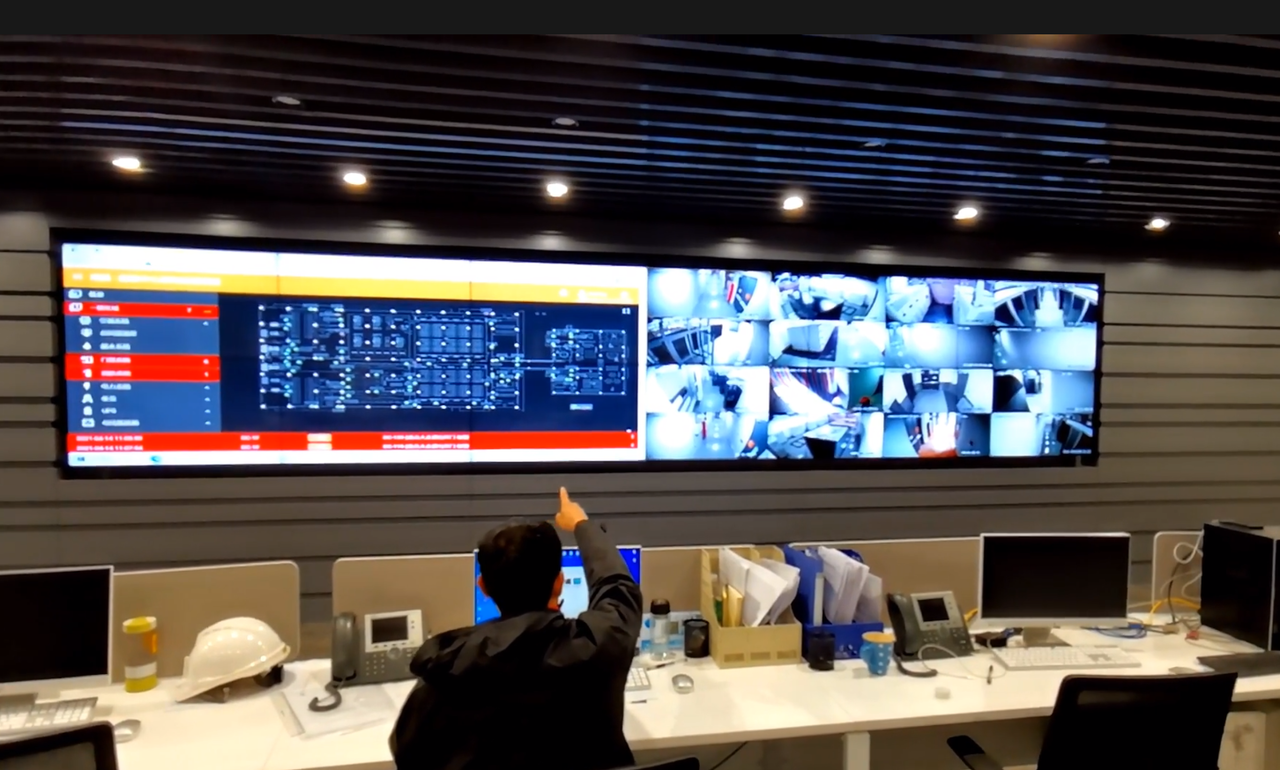What is Security Operation Centre (SOC)?
A Security Operation Centre (SOC) is a centralized facility that serves as the nerve center for an organization’s cybersecurity operations. It combines advanced technologies, skilled personnel, and robust processes to monitor, detect, analyze, and respond to security incidents and threats.
The primary goal of a SOC is to protect the organization’s data, applications, and critical infrastructure from unauthorized access, breaches, and cyber-attacks. A SOC employs various tools and technologies, such as Security Information and Event Management (SIEM) systems, intrusion detection/prevention systems, log management solutions, and threat intelligence platforms. These tools collect and analyze security-related data, generating alerts and notifications when potential threats or anomalies are detected. SOC analysts investigate these alerts, perform threat hunting, conduct forensics, and implement incident response measures to mitigate risks and minimize the impact of security incidents.
SOC personnel are highly skilled in cybersecurity, possessing expertise in areas such as threat intelligence, incident response, vulnerability management, and security technologies. They stay updated with the latest security threats, trends, and mitigation strategies to ensure the effectiveness of the SOC’s operations. SOC teams also collaborate with other departments within the organization, such as IT, legal, and compliance, to align security measures with business objectives and regulatory requirements.


What is Network Operation Centre (NOC)?
A Network Operation Centre (NOC) is a centralized facility responsible for monitoring, managing, and optimizing an organization’s network infrastructure. The NOC ensures the availability, performance, and reliability of the network by closely monitoring network devices, diagnosing and resolving network issues, and implementing changes to optimize network performance.
The NOC utilizes network monitoring tools, network performance analysis software, and network device management systems to gather real-time data on network health, traffic patterns, and device status. This data helps NOC personnel identify potential network issues, troubleshoot problems, and proactively address them before they impact network operations.
NOC teams closely monitor network uptime, bandwidth utilization, latency, and other performance metrics to ensure the network meets the organization’s requirements. NOC personnel possess expertise in network infrastructure, network protocols, network management tools, and troubleshooting techniques. They work closely with network engineers, system administrators, and other IT teams to maintain network availability, implement network changes, and optimize network performance.
The NOC plays a critical role in ensuring seamless connectivity and efficient network operations, supporting the organization’s day-to-day activities and business processes.


Why SOC and NOC are important to data centers?
SOC and NOC are essential components of data centers due to the following reasons:
Security Enhancement
A SOC provides continuous monitoring, detection, and response capabilities to protect the data center’s infrastructure against evolving cybersecurity threats. It helps identify vulnerabilities, detects security incidents promptly, and implements effective incident response measures. By proactively safeguarding data, applications, and critical systems, a SOC enhances the overall security posture of the data center.
Network Reliability and Performance
A NOC ensures the reliable and optimal performance of the data center’s network infrastructure. By monitoring network devices, diagnosing and resolving network issues, and implementing changes to optimize performance, the NOC minimizes network downtime, improves network availability, and ensures seamless connectivity. This reliability is crucial for data center operations, where uninterrupted network access and high-speed connectivity are essential.
Business Continuity and Risk Mitigation
Both SOC and NOC contribute to business continuity and risk mitigation in data centers. A SOC helps identify and mitigate security risks, protecting critical data and infrastructure from potential breaches and attacks. A NOC ensures network availability and performance, reducing the risk of network-related disruptions. By proactively managing risks and enhancing operational resilience, SOC and NOC help ensure uninterrupted services and minimize financial and reputational damages.
Key Components of SOC and NOC
24/7 Monitoring and Alerting
Our SOC and NOC teams provide round-the-clock monitoring of security events, network performance, and infrastructure health. They leverage advanced monitoring tools and technologies to detect anomalies, generate alerts, and respond swiftly to incidents.
Threat Intelligence and Incident Response
Our SOC leverages threat intelligence feeds, advanced analytics, and incident response frameworks to identify and respond to security threats effectively. Our NOC employs proactive monitoring, troubleshooting, and remediation strategies to maintain optimal network performance.
Vulnerability Management
Our SOC conducts regular vulnerability assessments, penetration testing, and patch management to identify and address potential weaknesses in your infrastructure. Our NOC monitors network vulnerabilities, configures devices, and implements preventive measures to protect against network-related risks.


Key Features and Benefits
Proactive Threat Detection
Our SOC employs advanced threat detection techniques and real-time monitoring to identify and respond to security incidents promptly, minimizing the impact of potential breaches.
Rapid Incident Response
Our experienced SOC analysts provide rapid incident response, ensuring timely containment, mitigation, and remediation of security threats, thereby reducing downtime and potential damages.
Network Performance Optimization
Our NOC ensures optimal network performance, proactively monitoring network devices, diagnosing network issues, and implementing corrective actions to maintain seamless connectivity.
Expertise and Scalability
With our skilled SOC and NOC teams, you can leverage our expertise and scale your security and network operations without the need for significant investments in resources and infrastructure.
What Can OneAsia Provide?
At OneAsia, we provide comprehensive SOC and NOC services tailored to your specific needs:
Managed SOC Services
Our Managed SOC services include 24/7 security monitoring, threat intelligence, incident response, vulnerability management, and compliance reporting.
Managed NOC Services
Our Managed NOC services encompass 24/7 network monitoring, performance optimization, troubleshooting, network device management, and proactive network maintenance.
Integrated SOC and NOC Solutions
We offer integrated SOC and NOC solutions to provide a holistic approach to security and network operations. By combining the expertise of our SOC and NOC teams, we ensure seamless coordination and enhanced operational efficiency.


Differences Between SOC and NOC
While both a Security Operation Centre (SOC) and a Network Operation Centre (NOC) are critical components of an organization’s infrastructure, they serve distinct purposes and focus on different aspects. Here are the key differences between SOC and NOC:
Focus
A SOC primarily focuses on security operations, monitoring, and incident response related to cybersecurity threats and risks. It aims to protect data, applications, and critical infrastructure from unauthorized access, breaches, and cyber-attacks. On the other hand, a NOC focuses on network operations, monitoring network performance, ensuring connectivity, and optimizing network infrastructure for seamless operations.
Responsibilities
The primary responsibility of a SOC is to monitor and detect security incidents, analyze threats, and respond swiftly to mitigate risks. SOC analysts investigate security alerts, conduct forensics, and perform incident response activities. In contrast, a NOC is responsible for monitoring network devices, diagnosing and resolving network issues, implementing network changes, and ensuring network availability and performance.
Skill Sets
SOC personnel typically possess expertise in cybersecurity, threat intelligence, incident response, and security technologies. They are trained to analyze and respond to security incidents effectively. NOC personnel, on the other hand, have expertise in network infrastructure, network protocols, monitoring tools, and network device management. They focus on maintaining network uptime, resolving network-related issues, and optimizing network performance.
Tools and Technologies
SOC utilizes advanced security tools such as Security Information and Event Management (SIEM) systems, intrusion detection/prevention systems, log management solutions, and threat intelligence platforms. These tools help in real-time monitoring, threat detection, and incident response. In comparison, NOC employs network monitoring tools, network performance analysis tools, and network device management systems to monitor network health, identify network issues, and optimize network performance.
Operational Objectives
The primary objective of a SOC is to ensure the security and integrity of an organization’s data, systems, and infrastructure. It aims to prevent unauthorized access, detect and respond to security incidents, and implement proactive security measures. Conversely, the main objective of a NOC is to maintain network availability, optimize network performance, resolve network issues, and ensure seamless connectivity.
While SOC and NOC have different focuses and responsibilities, they often work in collaboration to ensure comprehensive protection and efficient operations. Integration between SOC and NOC allows for seamless communication and coordinated responses during security incidents that may impact network operations. By understanding the differences between SOC and NOC, organizations can appreciate the importance of both functions and establish effective collaboration between them to enhance overall security and network operations.
FAQ
What is the primary function of a Network Operation Centre (NOC)?
The primary function of a NOC is to monitor and manage network infrastructure, ensuring network availability, performance optimization, and rapid resolution of network issues. It focuses on maintaining the smooth operation of network connectivity and devices.
What is the main role of a Security Operation Centre (SOC)?
The main role of a SOC is to monitor, detect, and respond to security incidents and threats. It proactively protects data, applications, and critical infrastructure from unauthorized access, breaches, and cyber-attacks, utilizing advanced technologies, threat intelligence, and incident response protocols.
How do NOC and SOC work together?
NOC and SOC work together in a coordinated manner to ensure seamless operations and enhanced security. While NOC focuses on monitoring and maintaining network infrastructure, SOC monitors for security incidents and provides timely responses. Integration between the two facilitates effective communication and collaboration during security incidents impacting network operations.


